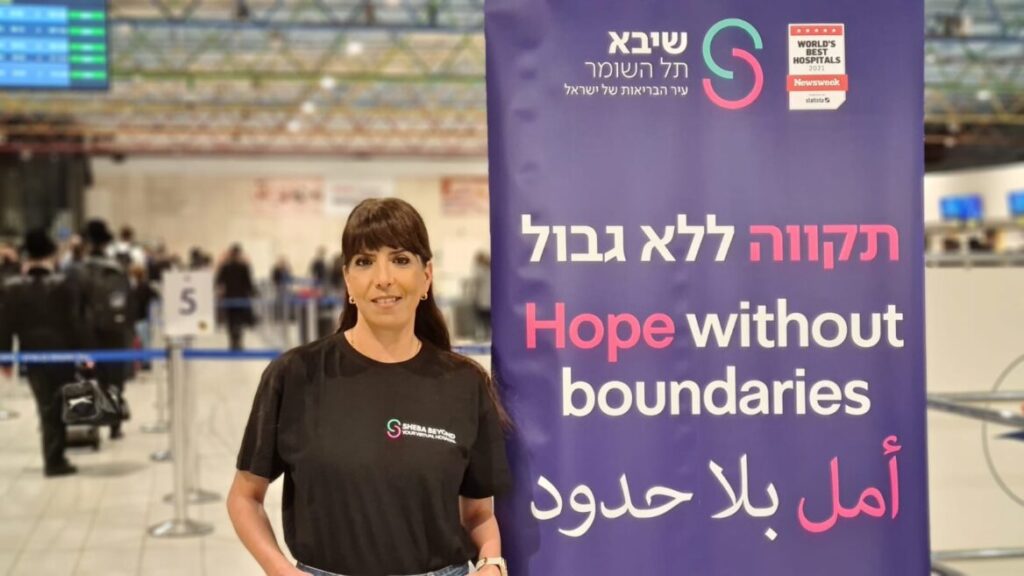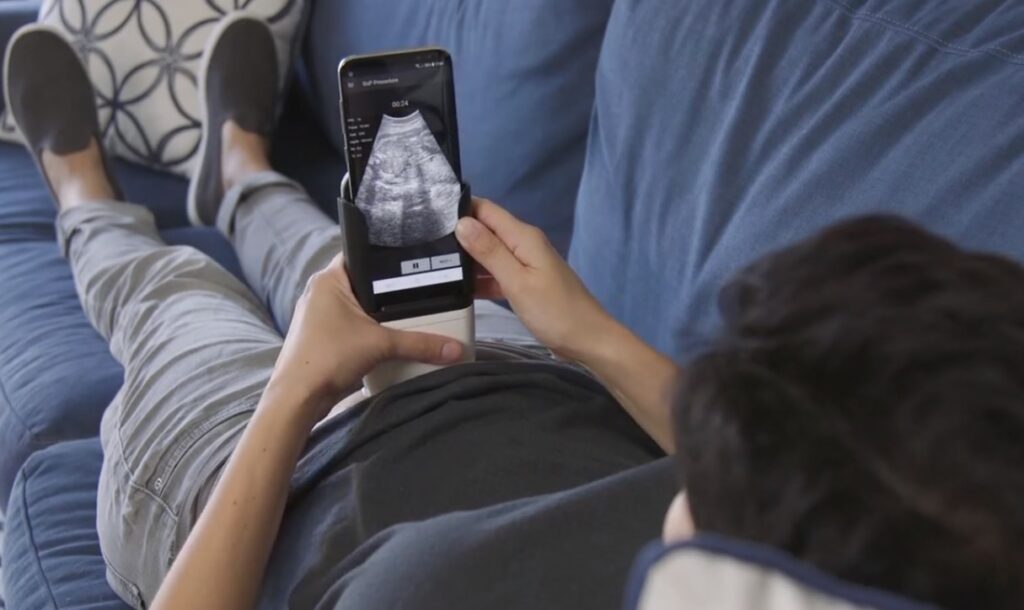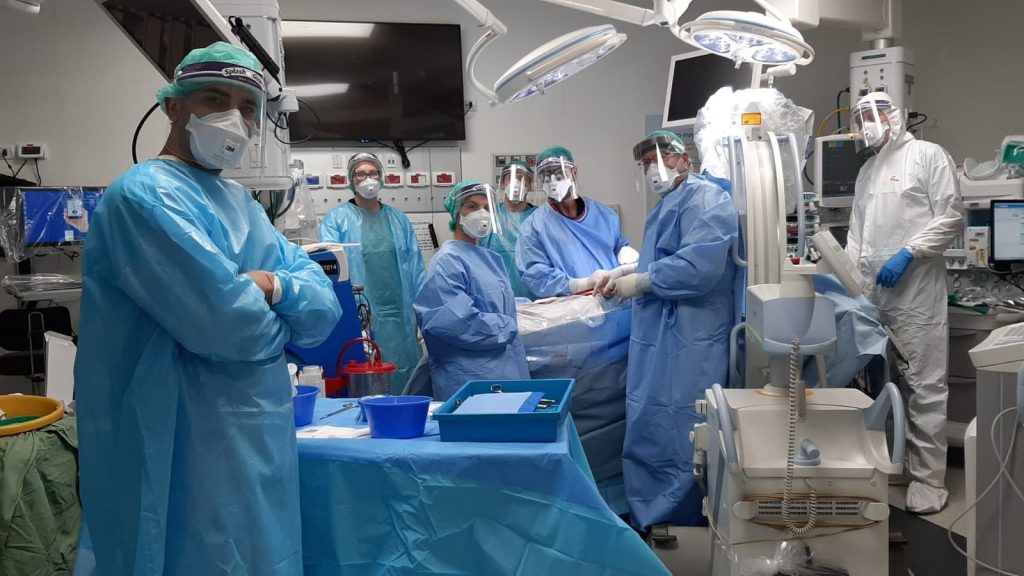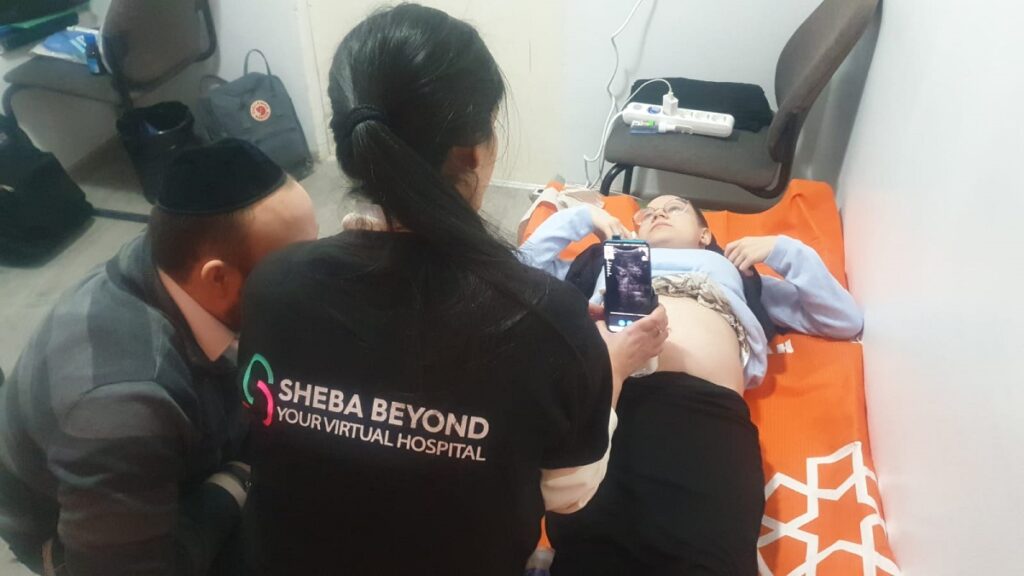Israel’s Sheba Medical Center opened a virtual hospital in the capital city of Moldova last week to enable medical staff in Israel to treat refugees from Ukraine crossing the border with the help of telemedicine technologies.
Sheba’s doctors and health professionals are using a number of telehealth tech solutions – including many developed in Israel – to provide the refugees with remote physical examinations, prenatal ultrasounds, health vitals monitoring, blood sample analysis, and a variety of other assessments.
“We understand that the services we’ve developed will help us change the paradigm of humanitarian aid because what we can do is to bring – by the means of technology – all of Sheba’s experts to the field, even if they’re not there,” says Dr. Galia Barkai, director-general of Sheba Medical Center’s virtual hospital, Sheba Beyond, tells NoCamels. Dr. Barkai is also the head of the Pediatric Infectious Diseases Unit, head of Telemedicine Services, and was instrumental in leading Sheba’s first coronavirus telemedicine program in February 2020 before the pandemic swept the country.
“We do true medicine but with the help of virtual means,” she says, “We decided to establish the virtual hospital with a mission is to bring Sheba’s expertise to patients wherever they are, through the means of technology.”

Sarit Lerner, chief technology officer of Sheba Beyond, flew to Moldova in early March with an initial delegation of 15 physicians, medics, and paramedics from the Israeli voluntary emergency response organization United Hatzalah.
This is the first time that Sheba Beyond has deployed its virtual hospital to a conflict zone and it is currently working on ways to support individuals remaining in Ukraine during the war.
“We felt we had a moral obligation to provide the technology and expertise of Sheba’s world-class clinicians and specialists to be on the ground to help these refugees,” said Lerner in a statement provided by Sheba, “I see the mission as a true representation of Sheba’s core values. We have a responsibility to utilize the information and capabilities that we possess to help others in need and to provide humanitarian assistance to people anywhere in the world.”
“They’re now opening a field hospital,” Dr. Barkai tells NoCamels, referring to the announcement from the Ministry of Foreign Affairs and the Ministry of Health that said they have sent an Israeli medical delegation to Ukraine to establish the space, which will be operated by Sheba and Clalit Health Services, “And we provide them the extra things that they don’t have on the field, the clinicians that are experts in the technology. So this is the value that we bring to this mission.”

Dr. Barkai says the group has been treating pregnant women, elderly patients, and sick kids who have been dealing with exhaustion, poor weather conditions, and wounds as they flee to the border.
“We’ve had some pregnant women that obviously after moving for a long time are very tired and a bit traumatized as well. They didn’t feel well and we were able to reassure them that the ultrasound was normal and the baby was ok. We’ve checked heart rate and fluid and everything. We’ve seen several patients with wound infections or with soft tissue infections. Sometimes frostbite because it’s really, really cold there. We’ve seen elderly patients with diabetes that is not well controlled. And there are many people and children with coughs,” Dr. Barkai says.
Sign up for our free weekly newsletter
SubscribeA video connection is obviously not a physical encounter, Dr. Barkai explains, but it does simulate one and it feels like the real deal. “[The patients] were really touched by the fact that they could see experts from Sheba and talk to them and ask them questions and tell them about their concerns,” she adds, “We’ve even had some patients that were there until yesterday and now are on a plane on a way to Israel already. We talked with them about continuing care there,” she adds.
“So yes, you can make a good connection.”
Telemed technologies
Among the top Israeli telemedicine technologies used currently by Sheba at this virtual hospital are: Tyto Care, a telehealth company that developed handheld devices that examine the heart, lungs, skin, ears, throat, and abdomen, as well as measure body temperature; Biobeat Medical Technologies, a company that monitors vital signs and displays them on the remote physician’s dashboard in real-time; Pulsenmore, a company that developed a portable prenatal ultrasound device takes images at the point of care to be analyzed by Sheba OB/GYNs in Israel; and i-STAT, a company that developed a handheld blood analyzer from Abbott Labs which provides lab-quality diagnostics in minutes.

“Sheba Beyond and our ability to bring advanced technology and medical expertise to any location in the world was spurred by the COVID-19 pandemic, which highlighted the need for quality telehealth services,” said Dr. Barkai in a statement, “Throughout the pandemic, we were able to test the effectiveness of our technologies to treat patients from a distance. This has enabled us to provide these crucial telehealth technologies to this humanitarian mission and to help support the dedicated first responders in Ukraine.”
Sheba at the forefront of telemedicine
Dr. Galia Barkai became the head of a new coronavirus telemedicine program launched by Sheba Medical Center in February 2020, which was said to be the first of its kind in the world. The program, which was then being tested on Israeli patients thought to have the contagious respiratory virus, was intended to create an innovative patient care center for patients under remote care and supervision.

At the time, Dr. Barkai said that she envisioned that if and when the virus came to Israel, there would only be a limited amount of isolation rooms. Less severe patients could be monitored outside the hospital with telemedicine applications and communicate video while staying comfortably in their homes and reducing risk in the hospital.
According to Dr. Barkai, Sheba had already done some projects related to telemedicine and a few clinics that were working with telemedicine. But there were also a lot of regulatory and technological challenges and the physicians and patients were not ready for this. Then COVID-19 emerged, and “we did some things as the whole world did with telemedicine but we took it one step forward,” she explains.
The staff used telemedicine technologies to treat hospitalized patients to decrease physical contact between clinicians and patients. “We used technology to transform many of our outpatient clinics to virtual clinics,” she adds.
After the first wave of COVID, “we understood that not only have we changed…the world has changed,” says Dr. Barkai.
Related posts

Israeli Medical Technologies That Could Change The World

Harnessing Our Own Bodies For Side Effect-Free Weight Loss

Missing Protein Could Unlock Treatment For Aggressive Lung Cancer




Facebook comments